We’ve hit week three in The Great British Bake Off tent, and our two professional bakers, Gerhard Jenne and Charlotte Green, reckon Mary Berry and Paul Hollywood raised the ability bar a few notches higher with desserts.
Gerhard
“Floating Islands were last seen on a menu circa. 1970, or so it felt.”
Since I am in the middle of writing the Konditor & Cook Baking book and spend all day test-baking in a domestic oven - and of course there’s never enough work surface in the home kitchen - I could really sympathise with the bakers tonight. Those work benches might look big on screen, but…
The trifle was the perfect Signature Challenge to check their multi-tasking and organising talent. Proper layering was asked for, and Mary and Paul mostly got it. Personally, I thought they were a bit harsh on Beca’s ginger sponge-based idea, as her layering seemed full of contrasts and sharpness.
The ‘Floating Islands’ Technical Challenge that followed was in the same vein, requiring knowledge of different disciplines, with the added pressure of no instructions, and the clock ticking in the background.
Floating Islands were last seen on a menu circa. 1970, or so it felt. That said, they may soon have a comeback as an eco-dish, as everything is used and recycled. The eggs are split, the whites go into a meringue that is then shaped into quenelles, then poached in sweetened milk. The milk and the egg yolks are then used to make vanilla custard and, to top it all, there has to be a garnish of spun sugar. Enough certainly to send almost anyone into a spin.
Ali, who did well with his trifle, looked around like a schoolboy trying to find the answers in his neighbour’s exam paper. Howard seemed ridden with panic when he couldn’t find a spoon (like me with my zesting tool this afternoon). It all made for good telly.
Finally, the Showstopper. The remaining contestants had to produce two types of petit fours, one based on a sponge and the other on a biscuit base. Lots of different little tasks again. Paul explained that the key is to keep it simple and then embellish them – cue and cut to someone doing the opposite! Petit fours, or mini bakes, I certainly find are very popular with our customers as they allow them to be naughty without the guilt (and the calories).
Challenging for everyone as this week was, Mark started to look like a slapdash builder and dentist Deborah just seemed to be in bad form. Both sunk, and not just on account of their Floating Islands.
I noticed a few nifty little gadgets this week: a tin that allowed Howard to bake sponges at various sizes and Christine got her hubby to turn a wooden tool to shape dainty little brandy snap cones. These little touches of inventiveness can make the difference even in a professional kitchen. Not surprisingly, Christine walked away crowned the star baker!
Charlotte
“The remaining candidates will be striving to avoid the dreaded ‘soggy bottoms’.”
With so many skills needed this week, it was difficult to shine all round. As I suspected last week, Mark and Deborah did not make the cut in these devilishly difficult challenges. For me, no one really stood out; Kim performed well, but Christine had the edge with her unusual conical petits fours.
Trifle is surely one of Britain’s greatest contributions to the world of dessert. My grandmother made it often, and, these days, I like to make it with sponge soaked in liqueurs like Chambord or Frangelico. The sponge recipe is important in trifle – to retain sufficient crispness, a greater proportion of sugar is needed. Some contestants opted for traditional ladyfingers, but others baked regular sponge.
Making custard proved problematic, although the bakers must have foreseen that this would come. They should have taken a tip from Mary Berry, who uses double cream, which sets beautifully, or Nigella’s half cream, half milk recipe. Instead, several bakers disastrously opted for cornflour as a thickening agent, with Mark ignoring Paul Hollywood’s explicit warning against it. Howard produced a perfect custard sans cornflour, but it was promptly stolen by a flustered Deborah, forcing him to use her runny effort instead. The custard was the judges’ main area of complaint, although they seemed impressed by the flavours overall.
The îles flottantes, or ‘floating islands’ involved quenelling and poaching meringue – hardly techniques a home baker would know. The contestants tried to form the quenelles – rugby ball shapes – by clumsily using two spoons, but a single, confident stroke with a hot spoon curls meringue into quenelles more easily. Poor Howard made his meringue too soft, and then boiled it rather than poaching, causing it to split.
Spun sugar, another technique a savvy candidate might have expected and practised, also caused problems as the bakers neglected to transfer the caramel to an ice bath to halt cooking and allow thickening. By the time it reached the judging table, much of this decoration had seeped into the crème anglaise.
Perfect petits fours require precision, and Christine produced a custom-made tool for her gingersnap cones. Deborah baked with a silicone mould, but I find these hit and miss, and prefer to cut out shapes from sheet cake for perfect uniformity. Deborah’s cakes stuck firmly, ruining their fluted sides as she dug them out. Mark attempted macaroons, but left himself too little time to rest them.
The results were mixed: Rob’s precise rows looked professional, while Deborah’s were a mess, and Glenn’s were served in two mismatched sizes. Ali was criticised for coming up with “decorated shortbread”, and will need to up his game if he is to stay in much longer. Next week will be pies of all kinds, and the remaining candidates will be striving to avoid the dreaded ‘soggy bottoms’. Beca and Ali will have some work to do to prove themselves.
You can read Gerhard’s blog here. Follow Konditor & Cook on Twitter: @konditorandcook
Charlotte’s personal blog can be found here. Follow Langs of London on Twitter: @LangsofLondon

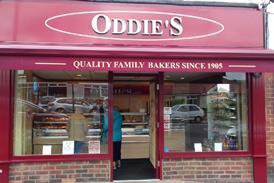
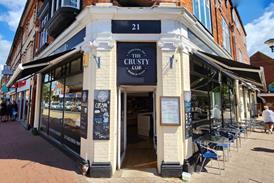
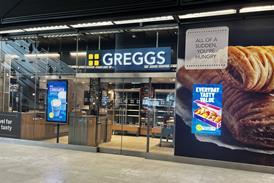
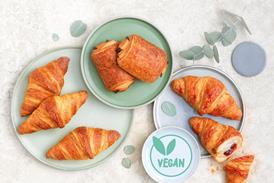
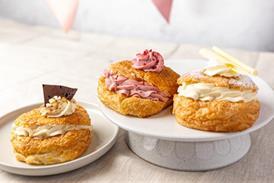
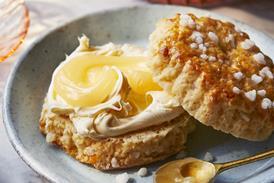
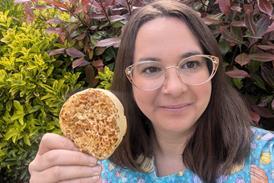
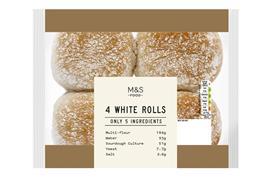
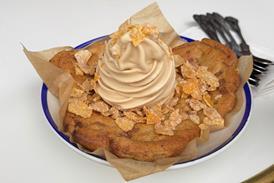
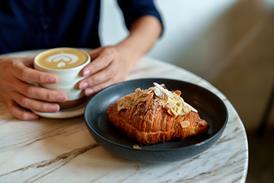

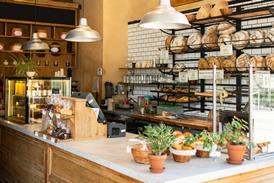


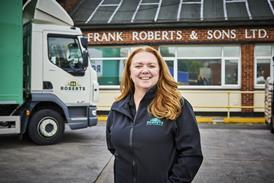
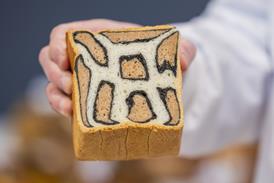
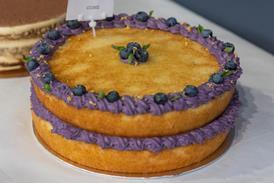
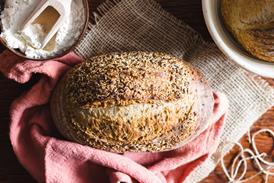



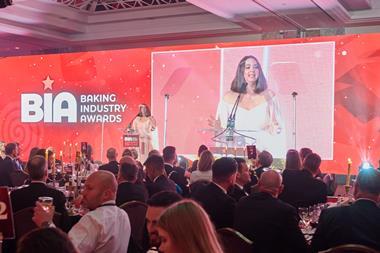
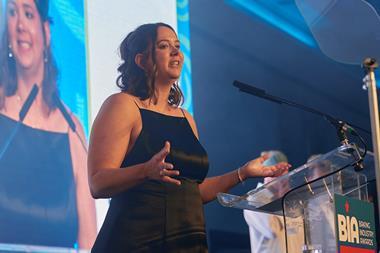






















No comments yet